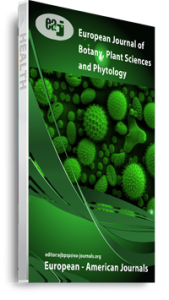Drought is the water deficit that impairs plants growth, development and yield compared with the normal water supply required for optimum growth. The drought which is an abiotic factor is one of the most common stresses that greatly hampered plants growth and development compared to other types of plant stresses. Plants tolerance to drought stress is a relevant issue that requires new improvement techniques like biotechnology to enhance stress-tolerant. The most common factors that influence plants tolerance to drought stress includes; the physiology of the plant, the extent of the plant stress, the growth stage, gene expression, the specie of the plant, etc.. Recent advances in plant biotechnology has seen remarkable progress in molecular markers selection processes and in developing transgenic plants with increased drought stress tolerant. These approaches have facilitated our understanding of underlying processes in plant responses to drought induced stress. Through plant genetic engineering and molecular marker techniques, drought stress induced genes have been identified and cloned. It therefore means that the applications of biotechnological and molecular approaches such as genomics, proteomics, and transcriptomic that can enhance a better understanding of plant water use efficiency and tolerance to improve yield under drought stress is very promising.
Citation: Chalachew Mesfin (2022) The Application of Molecular Plant Biotechnology for Improvement of Drought Tolerance, European Journal of Botany, Plant Sciences and Phytology, Vol.7, No.1, pp.28-61
Keywords: Application, Drought Tolerance, molecular, plant biotechnology

